Conventional wisdom says politics and sports don’t mix. On those relatively rare occasions that NHL players have taken a stand on social or political issues, they have sometimes suffered the wrath of fans demanding that they “stay in their lane.” Still, others want their hockey completely separate from politics, saying they watch hockey as a form of escape from serious subjects.
Like it or not, the NHL has always been involved in politics and social issues. It will become even more entangled as it evolves to meet the demands of a new generation of fans who want the businesses they patronize, including professional hockey, to reflect their values and beliefs.
The NHL Has Long History of Political Involvement
Sometimes even the league itself has scolded players for getting involved in politics and controversial social issues. In that, there was always a certain double standard on the part of the league and its franchise owners. Just ask Calgary mayor Naheed Nenshi, who faced demands in the middle of a 2017 election campaign from NHL Commissioner Gary Bettman and the Flames’ ownership to help finance a replacement for the aging Saddledome arena.
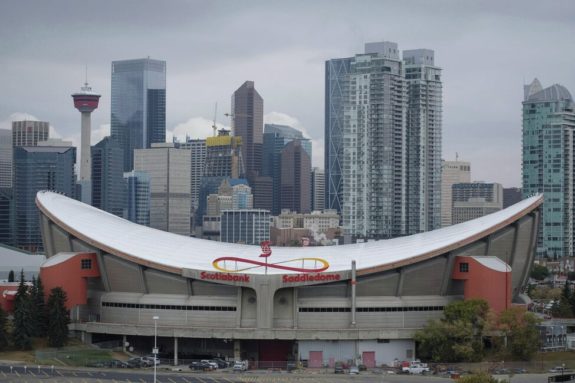
In Canada, it is not unusual to see wealthy NHL owners hitting up taxpayers to fund their arenas using the threat of moving their teams as leverage. They haven’t been successful often since Canadians generally take a dim view of extortion. That is not always the case with their American cousins, who seem to have an easier time subsidizing sports venues owned by billionaires.
If franchise owners can dabble in politics, then why can’t players? At least it can be said of players that they aren’t trying to line their own pockets at taxpayer expense.
In fact, hockey players, at least in Canada, do have a long tradition of political involvement both while playing and in retirement. Howie Meeker, a four-time Stanley Cup winner with the Toronto Maple Leafs, and later in life, one of the best-loved hockey broadcasters in the country, served as a Progressive Conservative Member of Canada’s Parliament in the early 1950s while playing for the Buds.
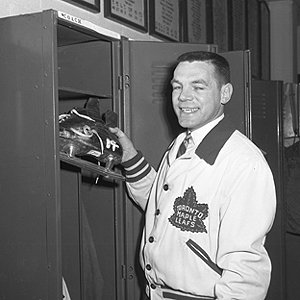
Leonard Patrick “Red” Kelly served two terms as a Liberal Member of Parliament (MP) in the early 1960s while on the Leafs’ roster. As an MP, he went up against Leafs’ owner Conn Smythe who opposed the Liberals’ plans to adopt the Maple Leaf as Canada’s flag.
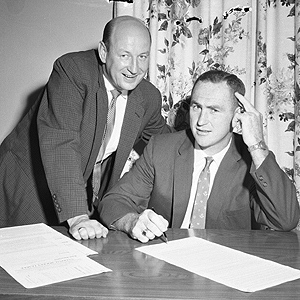
Hall of Famer Frank Mahovlich, also a former Leaf, followed in Kelly’s footsteps, serving as a Liberal Senator in Ottawa for 14 years before retiring in 2012.
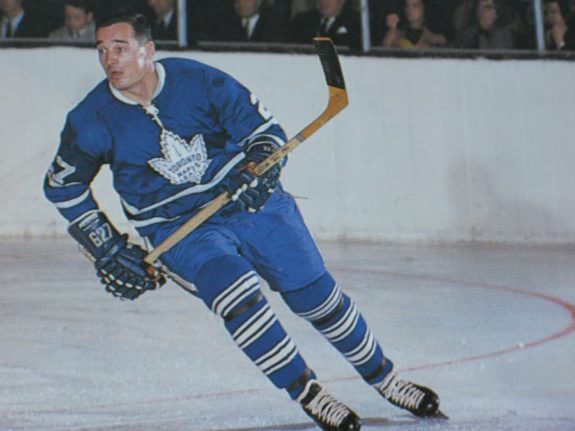
Montreal Canadiens great Ken Dryden sat as a Liberal MP from 2004 – 2011, during which time he also served in the Canadian cabinet and took a run at becoming the leader of his party.
Sometimes Politics Finds the Athlete
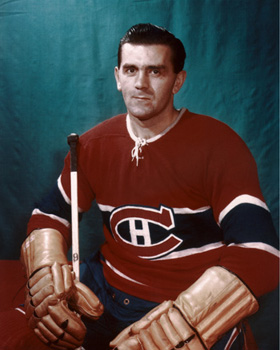
While most players get into politics by choice, some have the politics of the day projected upon them by their fans. That happened to the Montreal Canadiens’ Maurice “The Rocket” Richard, whose suspension by NHL president Clarence Campbell late in the 1954-55 season for both the remainder of that season and the playoffs, sparked the “Richard Riot” in which a mob of 20,000 Habs fans protesting the suspension smashed the Forum and surrounding businesses in downtown Montreal.
In Quebec, the suspension was regarded as an injustice and proof of unfair punishment meted out to a French-Canadian hero by an arrogant and bigoted English Canadian establishment. The rioting ended when officials asked Richard to take to the radio to admonish fans to end their protest and go home.
Richard had unwittingly become a lightning rod for nationalist sentiment in Quebec. The riot in his name is regarded as one of the first stirrings of the Quiet Revolution in Quebec, which ultimately laid the foundation for the province’s nationalist politics and several referenda on Quebec independence.
More recently, politics found the Pittsburgh Penguins’ Trevor Daley, who faced pressure not to participate in the team’s 2017 visit to America’s White House where American President Donald Trump was to fete the team for their second consecutive Stanley Cup victory.
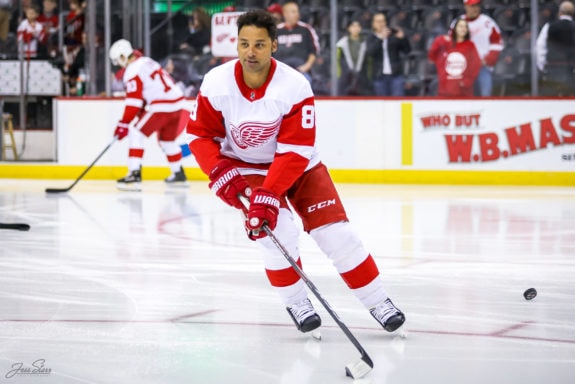
Daley, one of the few black players in the league, was pressured by many to refuse the invitation in protest for Trump calling National Football League (NFL) players who refused to stand for the American anthem “sons of bitches.” Many of those players were black. In the end, Daley bowed out of the event because of unspecified “scheduling conflicts.” (from “Custance: How NHL culture impacts player response to protests”, The Athletic, 26/09/2017)
Black Lives Matter
If politics can find the athlete, it can also find the league they play in. That is a lesson the NHL learned last summer when it drew criticism for not supporting the Black Lives Matter (BLM) movement in the wake of the George Floyd killing at the hands of Minneapolis police.
During the 2020 Playoffs, the Minnesota Wild’s Matt Dumba, a Canadian of Filipino descent and a founding member of the Hockey Diversity Alliance, took a knee during the American national anthem (but not O Canada) in the opening game between the Chicago Blackhawks and the Edmonton Oilers to draw attention to the BLM movement among other issues. Dumba was joined by two other black players — Darnell Nurse of the Oilers and Malcolm Subban of the Blackhawks.
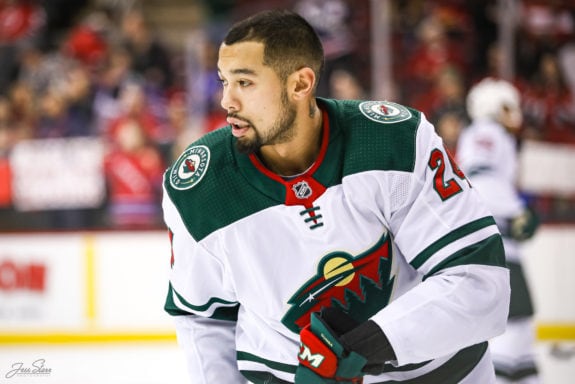
To the displeasure of many fans, the NHL barely mustered the courage to flash the insipid slogan “End Racism” on the Jumbotron above Dumba and the other players on the ice. It has gone to great lengths to avoid using the term “Black Lives Matter” and seems doggedly determined to remain “apolitical.”
In trying to straddle both sides of the issue, the league has satisfied no one. Socially progressive fans are unhappy with the league sidestepping the use of the term, while the remainder, whether they are people who just want to enjoy hockey without the politics or those who oppose the BLM movement, are annoyed.
Live by the Sword, Die by the Sword
While the politics of the day hit upon Richard as if by accident, most athletes with a political profile sought it out using the platform their celebrity bestowed upon them. Sometimes that can backfire.
A case in point is hockey legend Bobby Orr, who came out to support Trump just before the 2020 presidential election with a full-page advertisement in a Boston-area newspaper. In Canada, as much as Orr is revered, Trump is loathed, and across the country, people reacted with a mixture of revulsion and disbelief at Orr’s endorsement. Most of Orr’s fans seemed to be able to separate Orr, the player, from Orr, the Republican Party activist. Yet, damage to his brand was the only possible result of the endorsement.
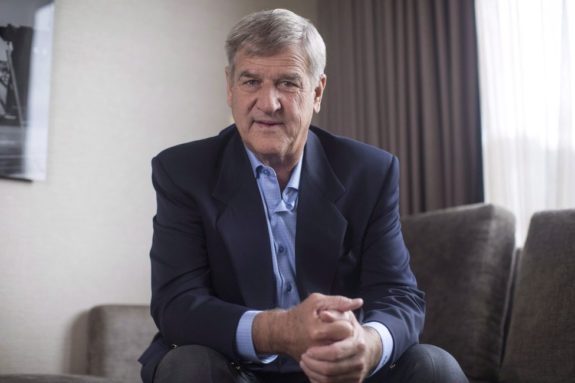
Wayne Gretzky is another hockey icon who took controversial political positions publicly. He enthusiastically endorsed the US invasion of Iraq in 2003 and gave his seal of approval to out of favour Canadian Prime Minister Stephen Harper in the run-up to his defeat in the country’s 2015 general election. What was vexing for many of his Canadian fans was that he hasn’t lived in Canada for over three decades, and as a non-resident, can’t even vote in Canadian elections. Why, they asked, would he go out of his way to take positions that were sure to be unpopular with huge swaths of his fan base?
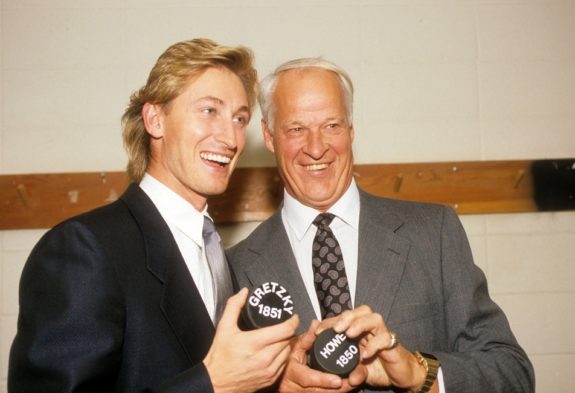
It’s not only some NHL oldsters who supported Trump and paid a public relations price for it. Vegas Golden Knights’ goalie Robin Lehner proudly adorned his goalie mask with a Trump sticker in the lead up to the 2016 Election. In 2020, he posted on Twitter that he wouldn’t make that mistake twice. Either way, he’s damned – a portion of his fan base is going to be unhappy regardless of what is on his mask.
Lehner isn’t the only Trump supporter in the league. Max Domi of the Columbus Blue Jackets published a photo of himself sporting Trump socks, while Jack Eichel of the Buffalo Sabres has not hidden his support for the former president. It’s hard to say if they damaged their reputation, but the question remains, why risk that if they don’t have to?
All of this is why some image and brand experts cynically take the view that a player can only lose by taking public positions on political and social issues. They often cite basketball legend Michael Jordan explaining why he refused to endorse a credible black challenger to Senator Jesse Helms in his home state of North Carolina, saying, “Republicans buy sneakers too.” Ironically, he said that 25 years ago, and it has come back to haunt him. He now claims he was joking.
How Much Credibility Do Hockey Players Have Anyway?
Hockey players have as much right to express their opinions as anybody else. Their celebrity gives them a bully pulpit that few have. Yet, do sports figures have any credibility as political activists? If anyone wanted an informed political opinion, how much stock would they put in the views of someone who shoots a puck for a living – especially when that’s probably all they’ve ever done? With some notable exceptions, it’s not like hockey players are subject matter experts on public policy issues.
That so many are influenced by the opinions of athletes and other entertainers is perhaps an indictment of what we have become as a society. So many people have lost trust in their political leaders, their public institutions and experts, that they have no one left to trust except athletes.
The Uneasy Partnership Between Politicians and Athletes
Going back to ancient Greece, it seems that politicians and the governments they lead have found it politically advantageous to link themselves with athletes. Sometimes that can be risky for all parties to the transaction.
Perhaps the 1972 Summit Series between Canada and the Soviet Union is the best example of the risky association between professional athletes and politics. In September of that year, Team Canada’s star-studded roster went up against the Soviet Union’s Red Army Team in an eight-game series to decide global hockey supremacy. Yet, it was more than hockey on the line – at least for Canadians. In their minds, nothing short of victory over the Soviets would validate their economic and political system – indeed, the Canadian way of life.
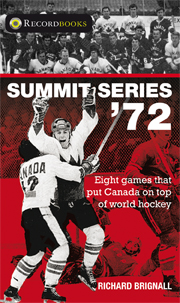
In the lead-up to the series, Canadians were supremely confident that their best would prevail easily over what they regarded as a second-rate Soviet squad. They were shocked when on September 2nd, their team was humiliated in the first game, 7-3 in the holiest of Canada’s hockey cathedrals – the Montreal Forum.
The series was far closer than Canadians had ever expected, and they booed their team after they went down to defeat in Vancouver to fall behind in the series with just one win and a tie in the four games played in Canada. Alternating between despair and panic, Canadians held their hockey heroes to account.
The government of the day had other worries. Prime Minister Pierre Trudeau was to lead his party into a general election in October, and he had predicted victory for his party, as surely as Team Canada would prevail over the Soviets. Polling showed that Canadians were in a foul mood at seeing their team fall behind in the series, and party strategists were concerned that the election would be lost should Team Canada lose the series.
Happily, for the Trudeau government, Team Canada’s Paul Henderson, who at the time played for the Leafs, scored the winning goal in the eighth and final game of the series to hand Canada victory. The series remains a reminder of the risk governments and politicians run when athletes to whom they tie themselves fail to deliver results.
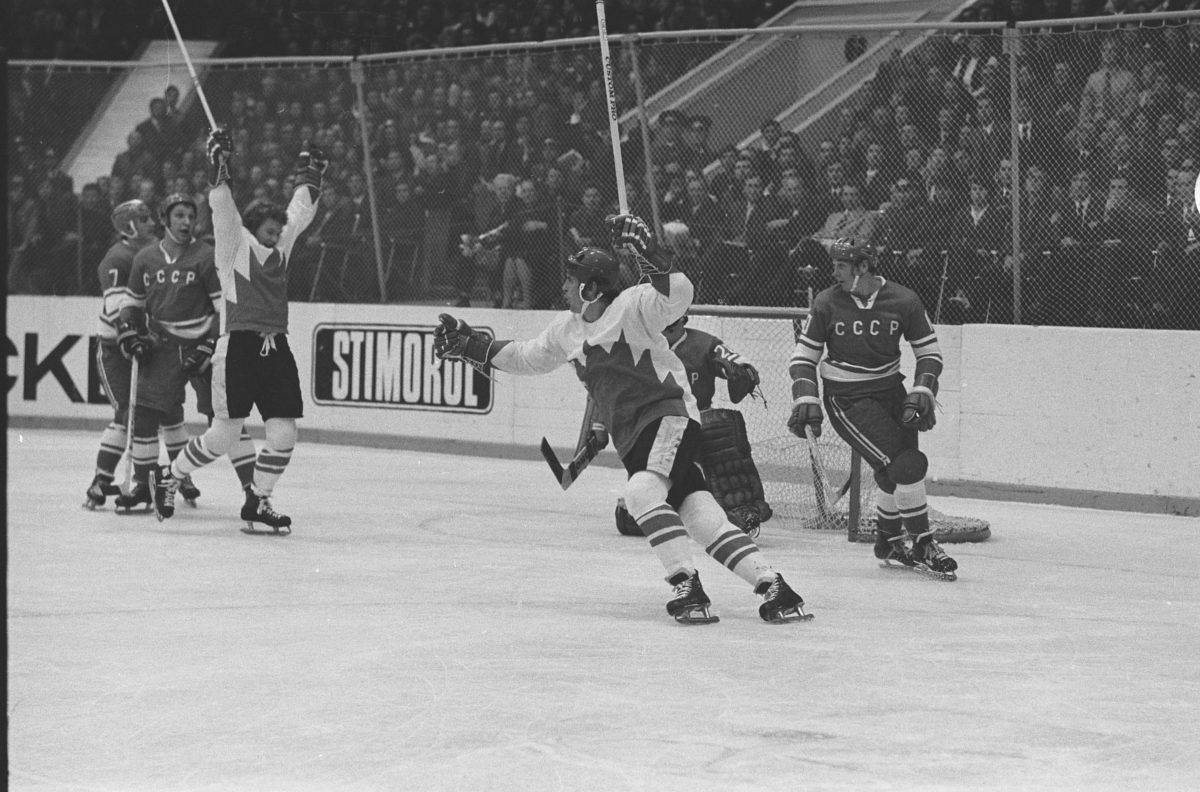
Today, we can look to Alexander Ovechkin to illustrate the risky association between politicians and athletes. The Russian supersta,r who plays with the Washington Capitals, is a vocal supporter of Russian President Vladimir Putin, and in 2017 founded a “social movement” he calls “PutinTeam.”
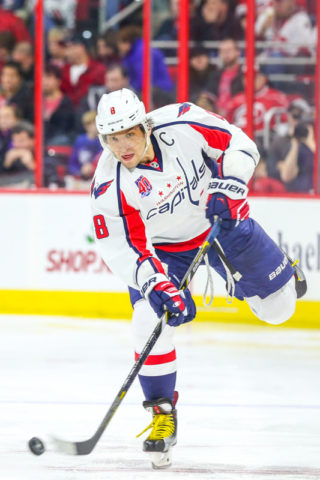
Fellow Russians Evgeni Malkin of the Pittsburgh Penguins, Hall of Famer Pavel Bure and retired NHL player Ilya Kovalchuk are part of the group whose aim Ovechkin says is “to support Putin.” (from “Alex Ovechkin is one of Putin’s biggest fans. The question is, why?” The Washington Post, 25/11/2017)
Related: Tribalism in Hockey: How it Sells the Sport
Of the relationship between Ovechkin and the Russian dictator, Russian journalist Mikhail Zygar, author of the book “All the Kremlin’s Men: Inside the Court of Vladimir Putin,” explained that Ovechkin represents the qualities that Putin wants to project on himself. “It’s the idea Ovechkin symbolizes. He’s a strong man who’s an athlete, who wins,” Zygar said. “Putin plays hockey, Ovechkin plays hockey. It’s a natural idea.”
The association with Putin is a fine line that Ovechkin must walk. He is very open and enthusiastic about it in his native Russia but downplays it in the United States, where 70% of Americans have a negative view of Russia. Up to now, Ovechkin has escaped serious rebuke for his views. Yet, the NHL and the Capitals must be nervous about the potential blowback on one of their major assets should public opinion harden against Russia.
It is not clear how Ovechkin benefits from the apparent political partnership he enjoys with Putin. It may be that he plans on returning to his homeland after his career ends and thinks a strong connection with the Putin regime could help with his retirement pursuits. His mother, Tatyana, was an Olympic gold medalist for the Soviet Union and used her Kremlin connections to get financial support for her Moscow basketball team.
Politics in Hockey Is Here to Stay
Many fans wish the NHL and its players would just stick to playing hockey the way they believe they did back in some mythical golden age. The truth is that hockey, as with other sports, has always been influenced by the politics and the social issues of the day.
At times, sports have even helped to shape them. In 1936, American Olympian Jesse Owens struck a blow against Adolph Hitler’s racist ideologies, and later, Jackie Robinson led black baseball players into Major League Baseball. And who could forget the poignant photograph of American sprinters Tommie Smith and John Carlos giving the Black Panther salute on the medal podium at the 1968 Mexico City Olympics?
The fact is that hockey fans themselves often view the game through a political lens. It’s why their chests fill with pride when their national team wins Olympic Gold. It’s why Don Cherry’s comments on various political issues were shared widely on social media by his adoring fans across Canada.
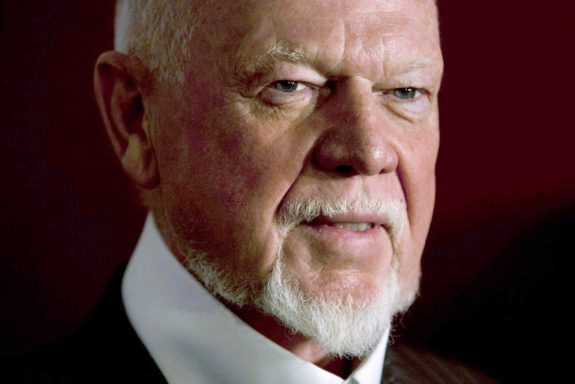
What hockey fans may really be objecting to when they complain about politics intruding into the game is not that players express political opinions but rather that they sometimes disagree with them.
As long as hockey is a part of our lives and we continue to put our heroes on a pedestal, we will continue to seek out their opinions and beliefs about the great issues of the day. And if they hold back from giving them to us, then we will project ours upon them. It’s simply human nature.